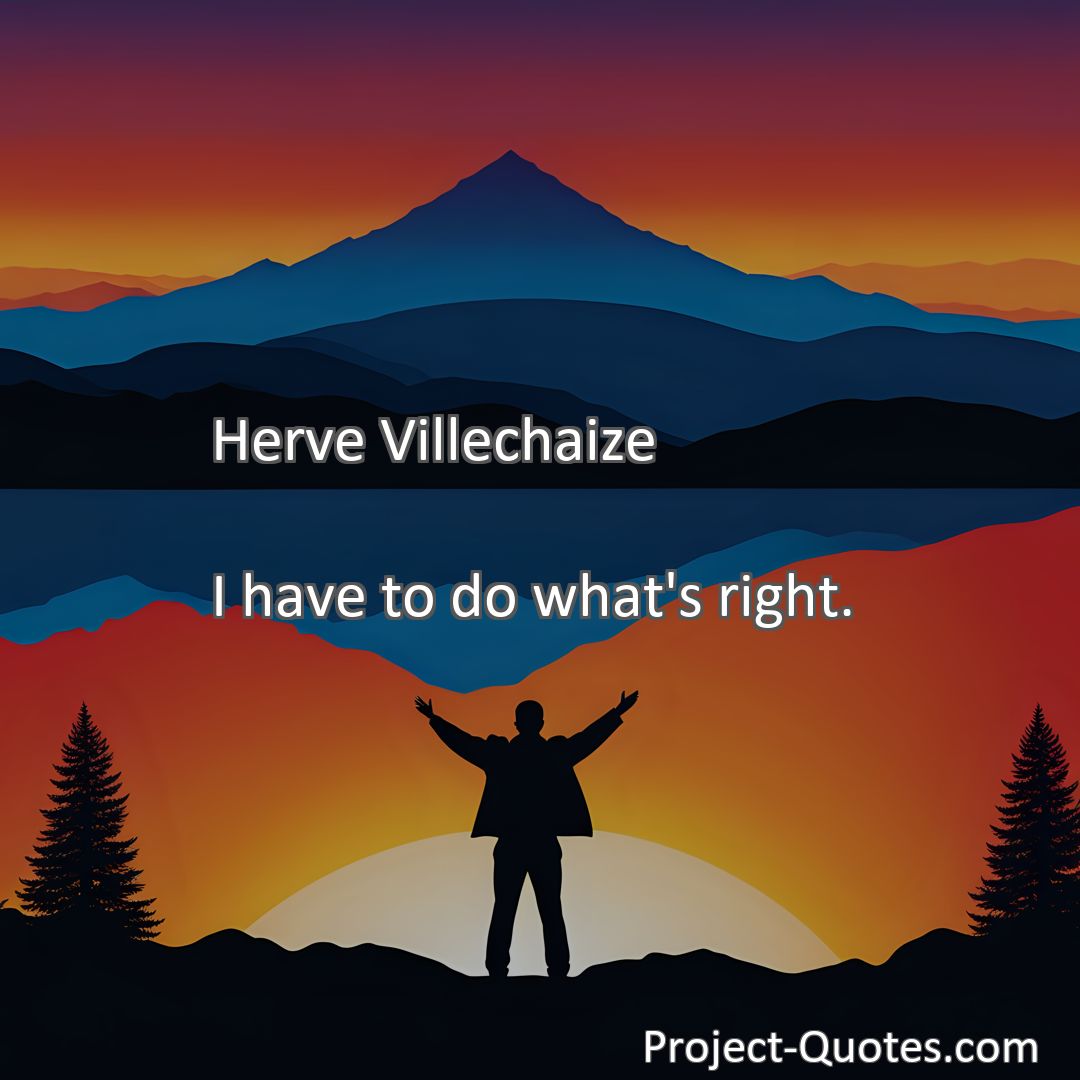I have to do what’s right.
Herve Villechaize
In this guide to doing what’s right, we explore the importance of making ethical decisions and how they shape our lives and the world. By adhering to universal moral principles, considering the impact of our choices, and having the courage to stand up for our beliefs, we can navigate dilemmas and make choices that align with our moral compass. Let this guide be a tool to guide us towards making ethical decisions in our personal lives, professional endeavors, and on a larger societal scale.
Table of Contents
Meaning of Quote – I have to do what’s right.
In the realm of making choices and decisions, one of the fundamental guiding principles that we often come across is the idea of doing what is right. We are constantly faced with dilemmas, big or small, where we have to weigh the consequences of our actions and make a choice that aligns with our moral compass. As the famous actor Herve Villechaize once said, “I have to do what’s right.” This simple statement carries a profound meaning, encapsulating the essence of moral responsibility and the power of individual agency.
To fully explore the depth and implications of this quote, we must first understand what it means to do what is right. Doing what is right implies adhering to a set of principles and values that govern our actions. It involves taking into consideration the potential impact of our choices on ourselves and others. While the concept of rightness can vary among individuals and cultural contexts, there are some universal moral principles, such as honesty, kindness, and respect, that guide us towards making ethical decisions.
At times, doing what is right might require us to go against the prevailing norms or expectations of society. It takes courage and conviction to stand up for what we believe to be right, especially when faced with opposition or potential consequences. However, as Villechaize’s quote suggests, the obligation to do what is right outweighs personal comfort or popularity.
Doing what is right is not a mere abstract concept; it has real-life implications. It manifests itself in our personal relationships, professional endeavors, and even on a larger societal scale. In our personal lives, doing what is right often involves treating others with kindness and empathy. It means being truthful and keeping commitments, even when it feels difficult or inconvenient. By doing so, we build trust, foster healthy relationships, and cultivate a sense of integrity within ourselves.
In the realm of work or school, doing what is right may present itself in various ways. It could mean putting in the necessary effort and dedication to achieve our goals, rather than seeking shortcuts or engaging in immoral practices. It may involve speaking up against injustices or advocating for the well-being of our colleagues. By consistently doing what is right in our professional lives, we not only earn the respect of others but also create an environment of fairness and equality.
On a societal level, doing what’s right goes beyond personal interactions. It involves engaging in responsible citizenship, advocating for positive change, and challenging oppressive systems. Societal progress has often been driven by individuals who refused to accept the status quo and fought for what they believed to be right. Whether it’s advocating for environmental conservation, fighting against discrimination, or standing up for human rights, doing what is right on a larger scale can have a lasting impact on our communities and the world at large.
However, the path to doing what is right is not always clear-cut. We may face situations where different perspectives clash, leading to ethical dilemmas. In such instances, it becomes essential to engage in critical thinking and consider the potential consequences of our actions. Making well-informed decisions requires us to evaluate the situation from multiple angles, consider the values at stake, and empathize with those who may be impacted by our choices.
Moreover, doing what is right is not a static concept. It evolves as we grow, learn, and gain new insights. What we perceive as right in our youth may differ from our understanding as adults. It is crucial to continuously self-reflect, question our beliefs, and remain open to differing viewpoints. Through this ongoing process, we refine our moral compass and strive to make even more informed choices.
In conclusion, Herve Villechaize’s famous quote “I have to do what’s right” serves as a poignant reminder of our individual responsibility to act in accordance with our moral compass. Doing what is right encompasses abiding by universal ethical principles, taking into account the impact of our actions, and having the courage to stand up for our beliefs. Whether in personal interactions or on a larger societal scale, doing what is right has the power to shape our lives, relationships, and the world around us. So, let us embrace this guiding principle and strive to make a positive impact through our choices and actions.
I hope this quote inspired image brings you hope and peace. Share it with someone who needs it today!


